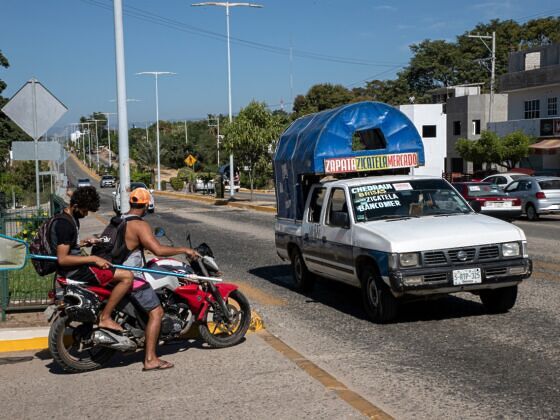On a marathon Holy Week trip across Mexico:
Salina Cruz, Oaxaca
This morning’s spectacle put Doña Charo in a melancholy mood.
We stood out on the water tank earlier and watched some poor, sweaty guy carry a cross up the steep road, while Roman
soldiers in shiny golden helmets whipped him and yelled insults. Behind them, a good sized crowd sang, “God, forgive your people” over and over, and Doña Charo blinked back tears.
